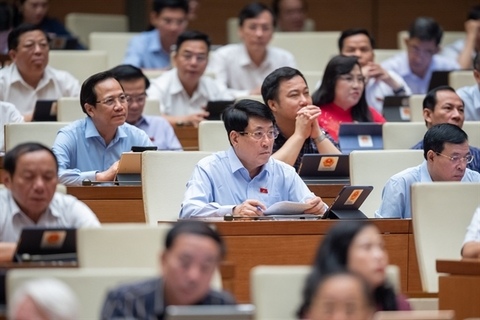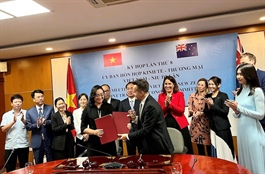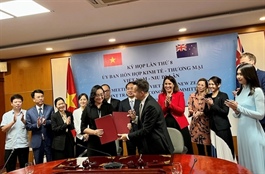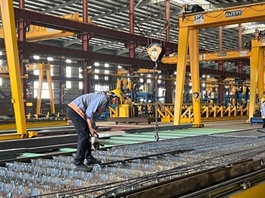Stronger procurement laws needed to ensure fair, competitive bidding
Stronger procurement laws needed to ensure fair, competitive bidding
It's high time that Viet Nam started implementing a robust Procurement Law that ensures fair, transparent and competitive bidding, said National Assembly deputies during a meeting on Wednesday in Ha Noi.

NA deputies during a session in Ha Noi on May 24. — VGP Photo |
Deputies have long voiced their concerns over the current procurement regulations which have resulted in prolonged periods of waiting, waste and loopholes despite being amended a few times in recent years.
They called for reforms to shorten bidding procedures, and improve accountability and responsibility.
The Procurement Law, first introduced in 2005 and amended in 2013, has been the main legal framework overseeing the selection of contractors for public projects. The law covers an extensive number of bidding methods including open and restricted bidding, direct award and procumbent, one-envelope and two-envelope procedures.
For the most part, deputies said the law is in line with Vietnamese laws and regulations, as well as international standards and practices. The law has contributed to enhancing the efficiency of the State budget, State capital in State-owned enterprises and national development programmes.
In addition, it has helped facilitate foreign investments in public projects.
"We propose keeping the current forms and methods to select contractors, which have been widely implemented and accepted, to avoid unnecessary disruptions," said Deputy Le Quang Manh, head of the NA's finance and budget committee.
However, shortcomings and limitations remained as there have been misconduct and negative incidents during the bidding process, which in many cases resulted in severe losses and damages to the State's assets.
In practice, as made evident by a number of high-profile criminal cases in recent years, individuals and groups have been found to deliberately collude and commit fraud in violations of the law for personal gain.
Therefore, deputies called for a comprehensive review of the current regulations, especially in overseeing the bidding process, defining the responsibilities of parties and handing out severe penalties for violations.
In an earlier development, the NA Standing Committee started a review and revision process to reduce the use of direct awards in public projects, including resettlement packages. Direct awards for consultancy packages can only be granted on the grounds of intellectual property and technical compatibility.
Direct awards for the procurement of drugs, chemicals, and medical equipment can only be granted when the country's healthcare facilities experience a shortage of supplies. Regarding key national projects, the decision to directly award projects can only be made by the NA.




















